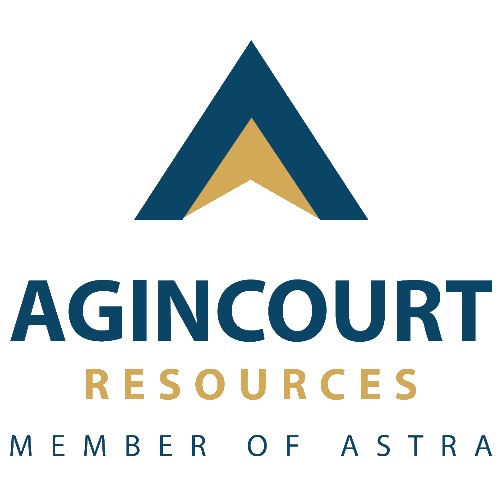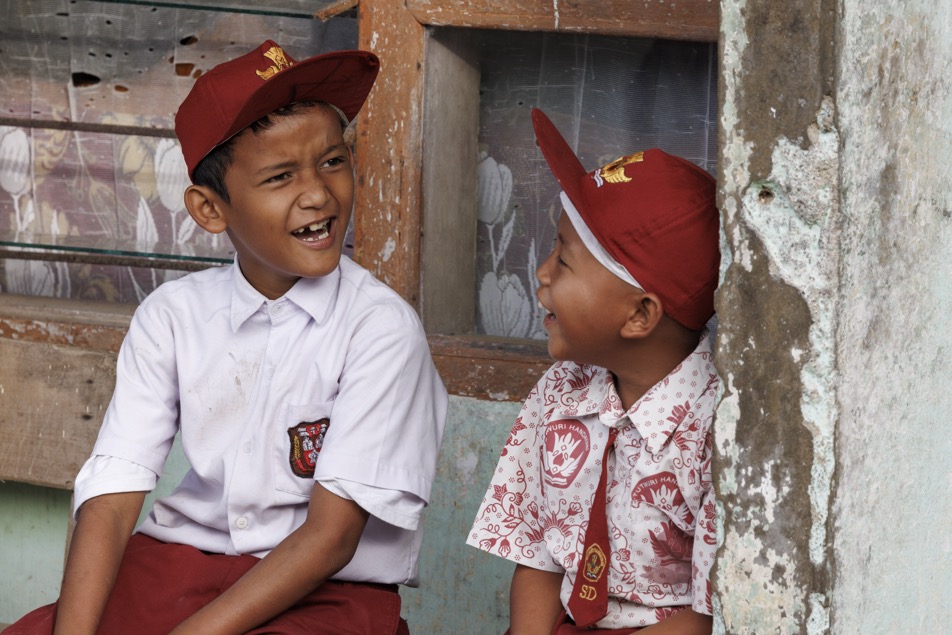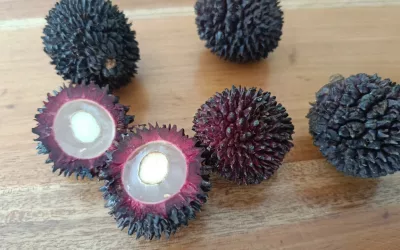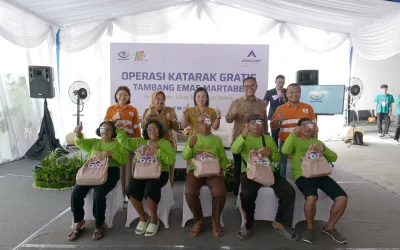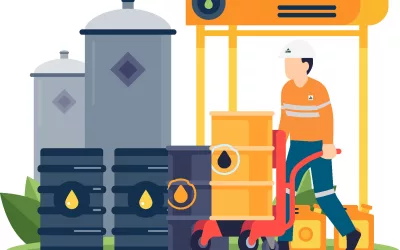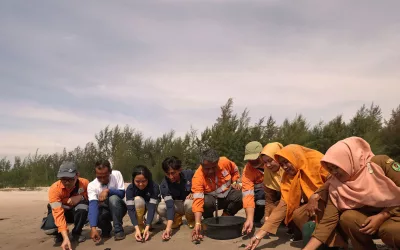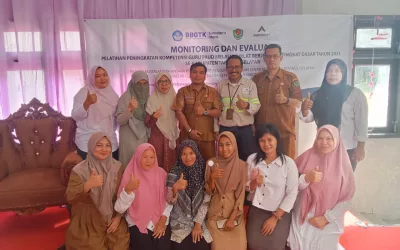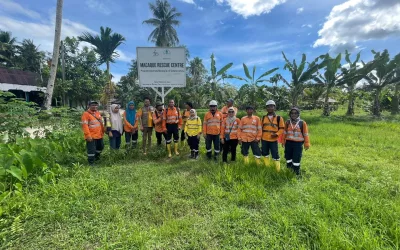The existence of a company must be beneficial to the surrounding community. Such is the commitment of PT Agincourt Resources (PTAR), the operator of the Martabe Gold Mine. This is evident in the company’s strategic plan for the Community Development and Empowerment Program (PPM) which focuses on improving the quality and services of education, health, social culture, economy and basic infrastructure for the community.
In the health sector, improving the nutrition of the community around the mine is one of PTAR’s targets. Good nutrition is the foundation for the development of high-quality human resources because it is closely related to an increase in one’s learning capacity, cognitive abilities and intellectual abilities. Good nutrition is also a sign of successful development and the fulfillment of human rights to food and health. Improving community nutrition is also a means to break the chain of poverty by increasing economic growth so that it has an impact on welfare at the community, family and individual levels. Therefore, it can be said that the nutrition improvement program, indirectly, also supports PTAR PPM programs in other fields.
For this reason, PTAR initiated Posyandu Revitalization in seven pilot target villages. Five of them are located in Batangtoru District, spread across Napa Village, Hapesong Lama Village, Aek Pining Village, Wek II Village and Telo Village. And two other Posyandu are in Bandar Hapinis Village and Terapung Raya Village in Muara Batangtoru District. Why Posyandu? First, Posyandu is a meeting point between the professional services of health workers and the active role of the community in tackling health problems, especially efforts to reduce infant mortality and birth rates. Second, the revitalization of Posyandu is part of a national program, which is stated in the National Medium-Term Development Plan (RPJMN) document and the Ministry of Health’s Strategic Plan for 2020-2024.
Posyandu plays a big role in ensuring the improvement of nutrition by monitoring the nutritional development of children and pregnant women. However, the monitoring function needs to be expanded by implementing the counseling function, so that community members really understand the need for good nutrition. Therefore, a revitalization program is needed, which aims to accomplish a more optimal Posyandu services by improving the knowledge and soft skills of Posyandu cadres, so that the cadres are skilled at conducting health screening and counseling, able to use the iPosyandu application, and able to develop follow-up plans. In addition, the Posyandu Revitalization Program also aims to expand Posyandu service targets so that it is not limited to mothers and babies, but can serve other family groups such as teenagers and the elderly.
It is hoped that through this revitalization program, the health status of the community in the 7 target villages will increase in line with the improvement in the community’s nutritional status.
In implementing the program, which began in July 2022 and lasted for six months, PTAR collaborated with the South Tapanuli Health Service and experts from CV Sinergi Medika Indonesia to organize various training activities and seminars for health cadres. One of them is the Webinar with the theme “Understanding Children’s Health Problems and Health Services at Posyandu,” hosted by paediatrician Fitria Mahrunnisa, M.Sc., Sp. A, on 4 August 2022.
Aek Pining Village Head, Hendra Sakti Siregar, gave positive appreciation for the Posyandu Revitalization Program which was implemented in seven target villages, including Aek Pining Village. “This program has a big impact on health cadres. When this program started and the cadres received health education, the cadres immediately began to collect data from toddlers to the elderly. The effect is that public health data collection is more complete than before,” said Hendra. The head of the Team for Empowerment and Family Welfare (TP PKK) Aek Pining Village, Puji Lestari, added that the Posyandu Revitalization Program has further increased the effectiveness of the 5 Posyandu Table system, especially Table 4 which focuses on nutrition counselling.
